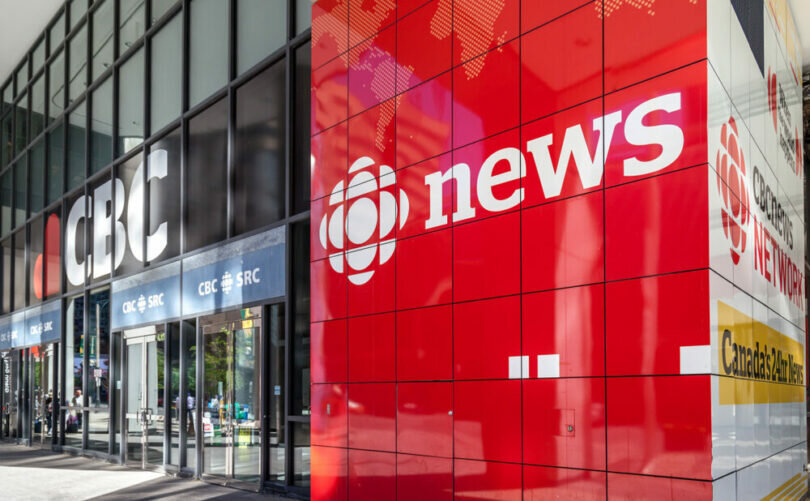October 30, 2020 (LifeSiteNews) – When the Human Rights Museum first opened in 2014 in Winnipeg, I flew in to join pro-life activists from around the province protesting outside. Despite the rain, folks of all ages stood alongside the crowd queuing to get in, holding signs depicting abortion victims and displaying quotes from various international human rights doctrines affirming the right of all members of the human family. I had been on one of the first tours through the museum, and Canada’s only human rights museum affirmed the nation’s greatest human rights violation—the destruction of four million children in the womb—as a victory for human rights. Abortion activists such as Henry Morgentaler and Gloria Steinem were lionized alongside champions such as Martin Luther King Jr. and Mahatma Gandhi.
Despite what progressive politicians would have us believe, the multiculturalism of Canada has actually resulted in very divergent views of what constitutes human rights. Progressive views—support for abortion and the ever-expanding LGBT agenda—are primarily held by white Canadians (something Justin Trudeau would never admit.) Recent polling, for example, indicated that 71% of respondents of European descent supported same-sex “marriage” while only 44% of respondents from East Asian backgrounds supported it and a mere 42% of South Asians. Pro-life activists have found that most recent immigrants to Canada are likely to be instinctively anti-abortion, as well.
Considering these divisions, it was inevitable that the Canadian Human Rights Museum would run into controversy. After all, it is hard to find a disagreement more fundamental than what constitutes a human right to begin with. The Sexual Revolution is controversial in a way that racial equality is not, and for good reason. In fact, Canada’s state broadcaster is reporting that the museum is again embroiled in controversy, with staff being told “not to talk about…abortion, in addition to censoring LGBT content, during some tours involving religious schools, according to emails obtained by CBC News.”

One employee stated that this happened “all the time,” and that schools would request these omissions ahead of time, with one email noting: “It is imperative that these things are not included in the tour due to their cultural beliefs. I sometimes mention what other colony/religious schools have restricted and they say that's definitely what they can't see, and they'd be in a lot of trouble if the students did see any of that.” Some staff members noted that they ignored guidance and gave the tours they wanted, offended by requests for omissions.
Follow Jonathon van Maren on Facebook
In a public statement, museum spokesperson Maureen Fitzhenry noted that abortion content is not included in educational programs for school groups, and that the emails publicized by the CBC highlight the concerns of specific schools. The CBC has been attempting to make the concerns of some religious school groups touring the museum an issue for some time: “The union representing museum employees said it recently became aware staff were previously censoring content about women's rights, in addition to material dealing with LGBT rights.”
As a result, regional executive vice-president for the Public Service Alliance of Canada’s Prairie region Marianne Hladun called for accountability: “We've now confirmed that they allowed requests to exclude anything around women's rights, particularly abortion…There's gotta be accountability moving forward. Up to this point, all of these things have been allowed to happen and we've not seen anyone made accountable for it.” In other words, those permitting tour guides that do not teach schoolkids that abortion is great should be fired.
This story is another perfect example of the Canadian media’s attempts to invent controversies where none exist. The Canadian Human Rights Museum was, by all accounts, attempting to accommodate Canada’s multicultural communities and the diversity of views on fundamental issues by choosing not to highlight feticide and various sexual revolutionaries during certain tours. This was done without fanfare, and it appeared to be an effective solution to differences. But Canada’s state broadcaster—funded by the taxpayer—decided that this was unacceptable, and has been publishing a series of stories and soliciting predictable reactions from a range of progressive activists to inquire as to whether they are outraged by this. As it turns out, they are. Or at least, they can certainly gin some up for the reporters solicitously requesting comment on something they have already judged to be outrageous.
The reality is that the progressive views on feticide and the Sexual Revolution are primarily the views of white Canadians and the media establishment. For all their talk of diversity, cultural accommodation, and making room for other voices, these progressives are simply too arrogant to realize that the vast majority of those who hold the same views are people who look just like them. The Canadian Human Rights Museum was making very reasonable accommodations for this fact. Canada’s state broadcaster, of course, is having none of it. Their diversity is of a simpler type: Everyone has the right to my opinion.
Jonathon’s new podcast, The Van Maren Show, is dedicated to telling the stories of the pro-life and pro-family movement. In his latest episode, he interviews pro-life activist Eric Scheidler, who discusses the impact of the pro-life grassroots movements and how his father’s (Joe Scheidler) pro-life activism helped shaped his own passion for life.
You can subscribe here and listen to the episode below:





